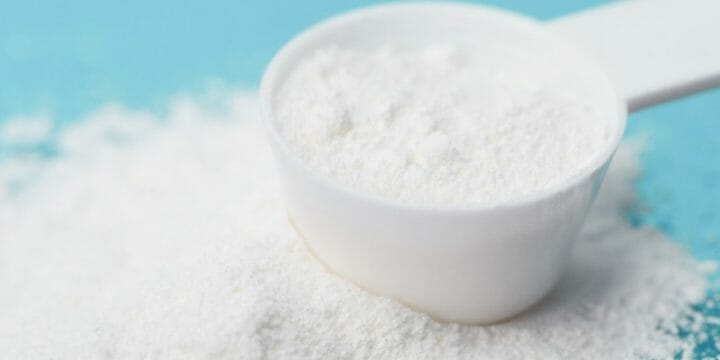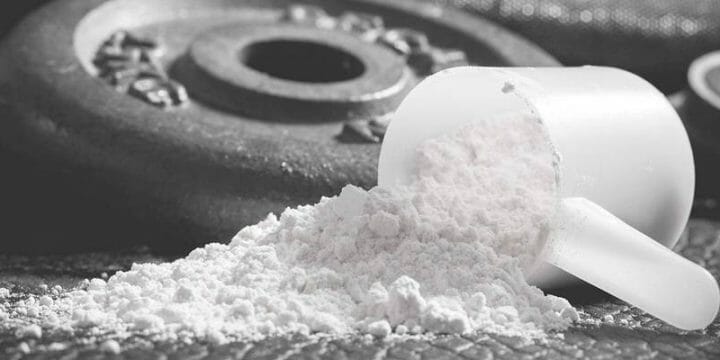Traditionally favored by weightlifters for muscle and strength gains, creatine supplements are now gaining attention among endurance athletes like swimmers, cyclists, and runners.
Drawing from my own experience as a former national soccer player and MMA champion, I understand the importance of strength and endurance in sports.
To help athletes make informed decisions, I've delved into scientific research and expert opinions, exploring the benefits, side effects, and optimal use of creatine for endurance training. Here, you'll find a comprehensive, fact-based guide on creatine use for endurance athletes.
Quick Summary
- For enhancing endurance and strength in runners, creatine supplementation is beneficial, as it aids in ATP production and improves high-intensity exercise performance.
- Creatine boosts muscle cell energy and reduces fatigue, enhancing endurance and stamina for longer, more intense workouts.
- According to a study in the Molecular and Cellular Biochemistry journal, runners using creatine can experience a 5–15% enhancement in sprint performance.
- Personally, I've observed creatine's positive impact on runners' muscle mass, recovery, and energy, supporting more intense training and faster sprints.
6 Benefits for Runners

As creatine turns into creatine phosphate in the body, it helps produce the adenosine triphosphate (ATP) molecule our muscles utilize for energy production [1].
For this reason, according to the Mayo Clinic, runners and other athletes involved in high-intensity intermittent activities can benefit from using creatine supplements [2].
The study published in the Medicine and Science in Sports and Exercise journal suggests the effects of creatine and carbohydrate loading on exercise capacity after comparing the data and results in the creatine group and placebo group [3].
“The changes in power output we observed during sprints are likely to have a major practical impact on the final outcome of a race, as both cycling and running events are often won by the athlete who can either stay with the leading pack during breakaways, or sprint to the finish line in the latter stages of a race.”
The most notable creatine benefits are:
- Boosts muscle cell energy, reducing fatigue linked to muscular pH drops, as per a Scandinavian Journal of Medicine and Science in Sports study [4].
- Enhances endurance and stamina, allowing for longer, more intense workouts and races.
- Improves sprint performance, with research indicating a 5–15% improvement in sprint times, according to a study published in the Molecular and Cellular Biochemistry journal [5].
- Aids in building muscle mass, particularly fast-twitch fibers, for increased strength and speed in short bursts.
- Increases strength and power, enhancing overall workout duration and intensity.
- It supports hydration, which is crucial for preventing muscle cramps, soreness, and injuries.
- Enhances recovery and energy regeneration, facilitating more rigorous and extended training sessions.
A Possible Downside

In discussing the fitness benefits of creatine, it's crucial to address a potential concern for endurance athletes: the likelihood of weight gain from water retention.
This is a significant factor for athletes who are wary of any supplement that might negatively impact their performance.
Moreover, the water-retention effect of creatine underscores the importance of hydration, particularly for long-distance runners.
Maintaining adequate hydration is essential to counterbalance the increased water retention and prevent dehydration risks, ensuring optimal performance and health.
When Should I Take It When Running?

From my training experience, I've learned that since creatine stays in your bloodstream for about 1 to 1.5 hours and is absorbed roughly an hour after ingestion, it's effective to split your daily dose.
Therefore, I used to take a serving of creatine supplement an hour before and after intense training sessions for maximum benefit.
Yet some of my colleagues believe the exact timing isn’t so critical, so it's best to find what works for you.
How Should I Take It for the Best Results?

Given that more creatine stored in your muscles enhances your cells' ability to produce and replenish energy during intense training, here's a science-based guide on how to supplement creatine effectively:
- An optimal creatine daily dose is 3-5 grams.
- Research suggests taking 20 grams per day split into 4 servings for 5 days (creatine loading phase) and then continuing with a lower maintenance dose of 3-5 grams per day for as long as you need to boost your creatine storage [6].
- To improve creatine absorption and maximize its effects, take it with foods that contain carbohydrate and protein, as suggested in the study published in the Journal of Applied Physiology [7].
- Once you’ve mixed your creatine supplement with fruit juice or another liquid, ensure you drink it immediately, as it will degrade if pre-mixed and left.
Which Creatine is the Best for Running?
The powder form of creatine monohydrate is the best for any runner in terms of safety and purity. Plus, this form is much more effective than pills, liquids, or other types of creatine products, as per NCBI [8].
P.S. If you're a vegan, these creatine brands are totally safe for you.
References:
- https://www.webmd.com/vitamins-and-supplements/creatine
- https://www.mayoclinic.org/drugs-supplements-creatine/art-20347591
- https://pubmed.ncbi.nlm.nih.gov/28806275/
- https://pubmed.ncbi.nlm.nih.gov/9809381/
- https://pubmed.ncbi.nlm.nih.gov/12701815/
- https://www.ncbi.nlm.nih.gov/pmc/articles/PMC2048496/
- https://pubmed.ncbi.nlm.nih.gov/10956365/
- https://www.ncbi.nlm.nih.gov/pmc/articles/PMC2048496/
About The Author
You May Also Like






